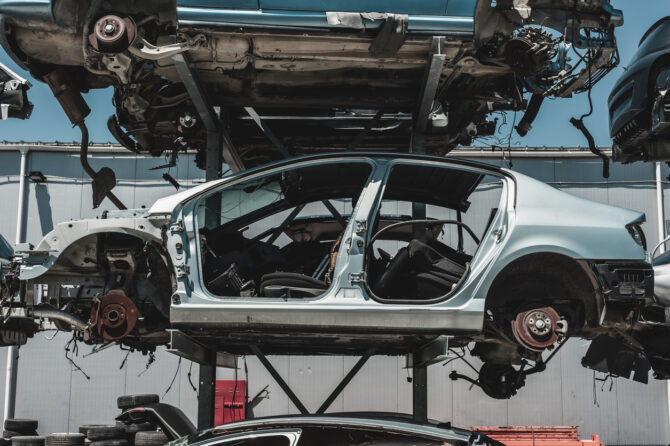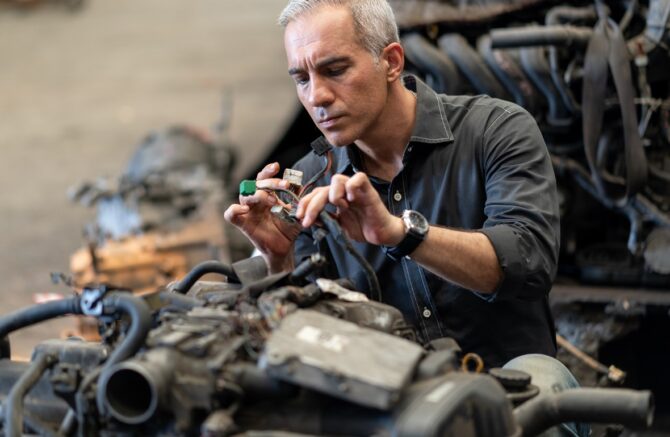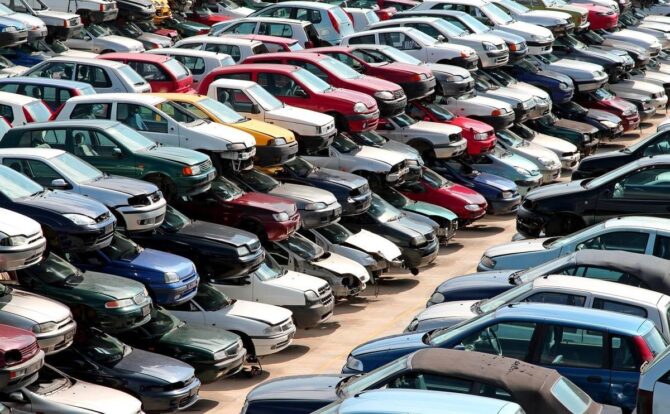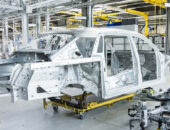
In today’s world, environmental conservation is more crucial than ever. As we grapple with the effects of climate change, pollution, and habitat destruction, every action we take can have a profound impact on our planet.
One such action is the decision to hold onto or scrap an old car. While it might seem like a minor choice, the environmental implications of this decision are significant.
The Environmental Impact of Old Cars

Source: medium.com
Cars have evolved significantly over the decades, not just in terms of technology and design but also in their environmental impact. As we delve into the specifics, it’s essential to understand the broader picture of how older vehicles affect our environment.
Emissions and Air Quality
Older cars, especially those built before stringent emission standards were in place, are notorious for their contribution to air pollution.
These vehicles often lack the advanced emission control systems found in newer models, leading to the release of harmful pollutants such as nitrogen oxides, carbon monoxide, and hydrocarbons.
In comparison, modern vehicles are designed to minimize emissions, ensuring cleaner air and reduced environmental impact.
Fuel Efficiency
Furthermore, older cars often operate on outdated fuel efficiency standards. This inefficiency means they burn more fuel for every mile traveled compared to their modern counterparts.
Over time, this increased fuel consumption not only hits the owner’s wallet but also results in a higher carbon footprint. Adopting newer, more fuel-efficient vehicles or alternative modes of transportation can significantly reduce this impact.
Fluid Leaks and Soil Contamination
Beyond emissions, old cars are more prone to fluid leaks. Whether it’s oil, coolant, or transmission fluid, these leaks can seep into the ground, contaminating soil and potentially reaching water sources.
Such contamination can harm aquatic life, disrupt ecosystems, and even pose risks to human health if the contaminants find their way into drinking water.
The Scrapping Process and Its Environmental Benefits

Source: cartakeback.com
The process of scrapping a car is more than just dismantling and crushing. It’s a meticulous procedure that, when done right, can offer numerous environmental benefits. Let’s explore the key aspects of this process and how they contribute to a greener planet.
Efficient Recycling of Materials
When a car is scrapped, it doesn’t just end up in a landfill. A significant portion of the vehicle, including metals like steel and aluminum, is recycled.
This recycling process reduces the need for new raw materials, which in turn reduces the energy consumption and environmental degradation associated with mining and processing.
For instance, recycling steel saves 56% of the energy it would take to produce new steel from raw materials.
Safe Disposal of Hazardous Materials
Cars contain various hazardous materials, from battery acid to brake fluid. When scrapping a car, professionals ensure these materials are safely disposed of, preventing them from leaching into the environment.
This careful handling not only protects the environment but also reduces the risk of health hazards to humans and animals.
Reusable Parts
Another noteworthy aspect of the scrapping process is the potential for parts reuse. Before a car is fully scrapped, usable parts, such as alternators, transmissions, or even entertainment systems, are often extracted.
These parts can then be refurbished and used in other vehicles, reducing the need for manufacturing new components. This reuse not only conserves resources but also reduces the energy and emissions associated with producing new parts.
The Circular Economy and Vehicle Recycling

The automotive industry, like many others, is undergoing a paradigm shift towards sustainability. Central to this transformation is the concept of the circular economy, which emphasizes recycling and reusability.
In this section, we’ll delve into how this concept applies to vehicle recycling and its broader implications.
The Concept of the Circular Economy
The idea behind the circular economy is simple: instead of the traditional “take, make, dispose” model, resources are kept in use for as long as possible, then recovered and regenerated at the end of their service life.
In the context of the automotive industry, this means recycling and reusing car components, leading to a more sustainable and environmentally friendly approach to vehicle production and disposal.
Benefits to the Economy and Environment
Vehicle recycling doesn’t just benefit the environment; it also has economic advantages. The recycling sector creates jobs, from collection to processing.
Moreover, by reducing the need for new raw materials, the industry can cut down on greenhouse gas emissions associated with manufacturing, further mitigating the effects of climate change.
New Technologies & Innovation
Moreover, the rise of vehicle recycling has spurred innovation in the automotive and recycling industries. New technologies and methods are continuously being developed to enhance the efficiency of recycling processes and to find novel uses for recycled materials.
This innovation not only drives economic growth but also ensures that the industry remains sustainable in the long run.
Additional Benefits of Scrapping Your Car

Source: cleanenergyministerial.org
While the environmental benefits of scrapping old cars are evident, there are other advantages to consider. From economic incentives to paving the way for greener transportation options, the decision to scrap an old car can have multifaceted benefits.
Economic Incentives
Many programs offer cash incentives for scrapping old cars, making it financially appealing for owners. These programs aim to get polluting vehicles off the road, replacing them with more efficient, environmentally friendly options.
Making Way for Greener Transportation
By scrapping an old car, you’re not just removing a polluter from the road; you’re also making space for greener transportation options.
Whether it’s a fuel-efficient hybrid, a fully electric vehicle, or even a bicycle, every step away from gas-guzzling older cars is a step towards a more sustainable future.
Less Traffic Congestion
Additionally, as urban areas become more congested, there’s a growing emphasis on reducing the number of vehicles on the road.
By scrapping older cars and opting for shared transportation, public transit, or carpooling, individuals can play a part in reducing traffic congestion, lowering emissions, and promoting a more sustainable urban environment.
Conclusion

Source: car.co.uk
The decision to scrap an old car goes beyond mere economics. It’s a choice that reflects a commitment to environmental stewardship, a cleaner planet, and a sustainable future.
As we continue to face environmental challenges, every action, no matter how small, counts. By understanding the environmental benefits of scrapping old cars, we can make informed decisions that benefit both us and the planet.



